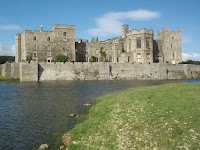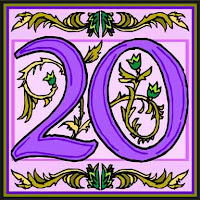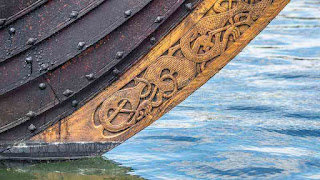The Vaux Rochettes King-Line of England
Samuel Vaux, 1786: son David, Grandson Robert Elijah
John Rockett
Richard Rockett
Robert Abernathy [111]
Robert A. Abernathy [11]
Roger Tilghman
Christopher Tilghman Jr.
Christopher Tilghman Sr.
Myra Elizabeth Rockett
Sarah Abernathy
Mary May Abernathy
Mary Harwell Howell
Christina Tillman,
Tilghman
Tilghman
Winnefred Tilghman (Austin)
Ruth Devonshire
Anna Saunders
House of Neville
Edward Saunders
John Saunders
George Wheatonhall
Thomas Richard Berkeley
George de Neville
Edward de Neville
Ralphe de Neville
Anna Pandreth
Anna Wheatonhall
Alice Alys Berkeley
Elizabeth de Neville
Margaret Fenne
Elizabeth Beauchamps
Joan de Beaufort
House of Plantagent
John of Gaunt, first duke of lancaster
Edward King of England III
Edward King of England II
Edward King of England I
Henry King of England III
John King of England
Henry King of England II
Henry King of England II
Katherine Swynford de Roet
Philippa Hainhault
Isabela of France
"Capetian Dynasty"
"Capetian Dynasty"
Eleanor of Castile
"Kingdom of Castile"
"Kingdom of Castile"
Eleanor of Provence
Isabela Countess of Angouleme
Eleanor Duchess of Aquitaine
House of Plantagent
House of Anjou
House of Angevins
Geoffrey Plantagenet, Count of Anjou
Fulk, King of Jerusalem
Fulk IV of Anjou. “le Rechin”
Geoffrey II, Count of Gatinais
Hughes de Perche
Matilda of England
Ermengarde, Countess of Maine
Bertrade de Montfort
Ermengarde of Anjou
Beatrice de Macon
Rockette Lettuce & Wine
The Rocket name, in french is the derivative of Roche, and originally in older dialects with the namesake of Roque, and there is a sharp tiny lattuie, (lettuce) known as Roquette.
When dealing with the "Vaux" name change into "Vans".
It could have been a humorous invent to name it after wine itself. Vans being the french phonetic of the french word for wine: "Les Vins".
It could have been a humorous invent to name it after wine itself. Vans being the french phonetic of the french word for wine: "Les Vins".
The number 20 "Vingt", pronounced "Vah-nne" ", Vins (in french)", coincides with many marvels, in Science, and even Sports.
"20" is the top number on a dartboard. The time of becoming an adult, to the Atomic number of calcium, and so forth.
"20" is the top number on a dartboard. The time of becoming an adult, to the Atomic number of calcium, and so forth.
Though the keep of 'Vannes', a strategically important city in Britanny, France;
the travels of the surname really stems from its prior hold on Southern France.
"Vans", surname is typically found in the North, with the French Normans, (through Maud Chester, listed on previous blog).
The heritage location, of Normandy and Bretagne, for the 'Vannes' names, was about one hundred and fifty years prior the time of William the Conquerer's Siege of England.
When "Rollo", and other famous knights of the tech-mechanic era surnames, many descending from the French Monarchs.
When "Rollo", and other famous knights of the tech-mechanic era surnames, many descending from the French Monarchs.
The Vaux Vans Baus
The V 'ahnce' with the long 's' snake sounding ending, was most likely from recent American dialects.Returning to History: Vaus, Vaud*, Vaux, Beau, and Baux,
All are pronounced "Voe",............(Vose and Bose, are directly plurals.* Vaud has a silent d.)
In non-written language what did mean?
Aside from bowed legs, "bow" can run towards the english sparring word for defeat.
There is the obvious usage though... Men of a great tribe who used bows and arrows.,
rather than being from a tribe of tall women who wore colorful bows in their hair.
There is the obvious usage though... Men of a great tribe who used bows and arrows.,
rather than being from a tribe of tall women who wore colorful bows in their hair.
Bringing the naming of the Voe (boe) sound to, the bow keepers.
"Boughs of trees, bows of Boats, & Violins."
Germanic Influence
The german "wo bist du?" "where are you?" confuses a bit, as "Valley" is a place and 'Wo' is the question. "Valley are you?" (asked, in modern English, "Are you from this valley?").As valley is the "where", and location is in question:
Which valley you are from, and how you are when there on an internal level?
Stated in only 3 small words, wo bist du?
Stated in only 3 small words, wo bist du?
Where the other responds, with which valley 'place name' he or she is from,
(the identity of a mapped place). "&" How's it going with you as a person, in retrospect to life experiences.
(your personal thoughts held.)
Many forms of Beauty
Where the most beautiful Vaux's become Beau's. I haven't seen anywhere online with Beau & Vaux together, which leads me to 2 versions: "beautiful valley" or just an "ok valley". Both valley types, able to contain other meanings indicative of the people:
"Are you in a beautiful place with yourself recently?", or just "Vaux: an average normal with nothing spectacular. Where when names were being assigned one-by-one as time passed.
The people from Baux (Beau) were known as being "kind-hearted or good-looking" and the ones from "Vaux", known as being: a normal friend or foe.
"Are you in a beautiful place with yourself recently?", or just "Vaux: an average normal with nothing spectacular. Where when names were being assigned one-by-one as time passed.
The people from Baux (Beau) were known as being "kind-hearted or good-looking" and the ones from "Vaux", known as being: a normal friend or foe.
Which Mountains to Climb?
Even the V as a sharp looking Consonant, meaning of a valley that's difficult to climb and dangerous, where the B valleys could be older mountains.In a time, when no words were written, the slightly softer tonation of 'B', from 'V' (in french) could have saved your life, by the direction of where you were physically walking towards.
The Viking Areas or the Bascogne, Many of the Northern mountains are not hikable, unless a mountain sheep and used all over Switzerland higher to climb Alps is Vaud, and Vaux, steeper and more dangerous. If anomalies have interrupted along the way, where a Baux mountain is steep, that probably returns to local claims from the Bascogne in spoken tongue were their regional lands.
Secure Your Valleys
To walk away from your valley, was to also possibly lose it to strangers or enemies. Hence, populating becoming a security need, where a religion with plural wives, like the Mormon faith would flourish. Oddly the Mormons do speak of "Golden tablets, etched-in writing on gold plates," from a time very long ago.
Keep the valleys filled with your army of persons, to maintain ownership.
The Local Claimers
It's very possible in modern Bretagne and other areas of Europe, that people from many old dialects prefer to not recognize official French ownership papers. Especially when the owners have forfeited their lands for a while to go elsewhere. ie., purchased house & fields, and the fields have been re-claimed by local farmers, after being allowed to till the soil for few years. A very difficult situation to stop, once they've been given the workable land.
A non-humourous situation, where a country officially sets its boundry and habitation rules, yet those rules don't really apply to the local people. The beaucracy of Paris is in Paris.
Namesake! It's My Kingdom, All the Lands and All the Castles !
Namesake castles: ie. "Vaux" Kingdoms'castles and chateaus,'deeded by its very own surnamed-persons (or builder designer count or countess Vaux, who named the chateaux.), The provenance effect is returns to the heritage of that family and surname.
A rightful ownership also, in the eyes of many, Non-disputed ownership. Where that castle belongs with persons of that family, as long as they do not abandon it on purpose.
A good info-source for the Rocketts is at http://tantleyrockett.familytreeguide.com













